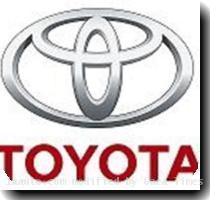Government may seek more authority to regulate vehicle safety following Toyota recalls
By Stephen Manning, APThursday, March 11, 2010
Gov’t may seek more authority on vehicle safety
WASHINGTON — Government vehicle safety regulators may seek greater authority to investigate defects in cars and trucks and are weighing a range of new safety requirements in response to Toyota’s recall of more than 8 million vehicles over brake and acceleration problems.
David Strickland, head of the National Highway Traffic Safety Administration, said Thursday his agency will take a “hard look” at the power it has to set safety standards for automakers. Current authority, acquired in the 1960s and 1970s, may not be enough to oversee the technology used in modern vehicles, he said.
But one lawmaker at a House hearing said the agency’s problems seem to have more to do with “ineptitude” and lack of money than with insufficient powers. Rep. John Dingell, D-Mich., said the agency’s response to the Toyota recalls had been sluggish after “years of stagnation in funding.”
Strickland told the panel it was unclear whether the agency can regulate “in a way that allows the auto industry to build and sell safe products that the consumer wants to drive.”
The government may also require automakers to include brake override systems, a fix intended to prevent the type of runaway car incidents that some Toyota drivers have described, Strickland said. It would ensure that a driver stepping on the brakes can slow the vehicle even if the gas pedal is stuck or malfunctioning.
Strickland said the agency will consider mandating event data recorders, or vehicle “black boxes,” which typically record data about whether the brake or accelerator pedals were depressed at the time of a crash. About 60 percent of vehicles already have the technology. He also vowed to look closely at push-button start and stop technologies to ensure that drivers can easily turn their cars off during an emergency.
Thursday’s hearing of a panel of the House Energy and Commerce Committee was the fourth in Congress related to Toyota’s massive recalls for problems with faulty gas pedals and brake problems. The committee was focused on the transportation safety agency’s oversight of the auto industry, which has been criticized for being too lax on automakers.
Under questioning from lawmakers, Strickland defended his agency’s handling of the Toyota recalls and took exception to criticism that it is a “lapdog” of the industry, noting it opened eight investigations into reports of sudden unintended acceleration in Toyotas.
“I don’t see Toyota as an indicative example of failure,” Strickland said. “I see it as NHTSA doing its job.”
Along with reviewing its authority, Strickland said, his agency is seeking 66 new employees to bolster its safety work. The agency will also review its ethics standards following claims that many former staffers head directly to automakers after they leave their jobs.
Congress is considering legislation following Toyota’s recalls. Strickland’s agency has tied 52 deaths to crashes allegedly caused by accelerator problems, and received new complaints from owners who had their cars fixed and said their vehicles suddenly accelerated afterward.
The Transportation Department has defended its work in policing the auto industry, noting that it dispatched safety officials to Japan late last year to urge the company to take safety concerns seriously. Toyota President Akio Toyoda recently met Transportation Secretary Ray LaHood and told him the company would “advance safety to the next level.”
Strickland said his agency receives more than 30,000 complaints a year and received 10,000 complaints in February alone. It has a staff of 57 people to investigate potential defects. He said the program has worked well in finding “unreasonable risks.”
But a former administrator of the agency, Joan Claybrook, testified that it is understaffed, underfunded and lacks the power to hold automakers accountable. Claybrook, who headed the agency during the Carter administration, proposed raising fines on auto companies for withholding information involving recalls. She also faulted the agency over secrecy involving data about potential defects.
The agency has been investigating potential electronic problems in Toyota cars and trucks. Toyota has said it has found no evidence of problems with its vehicles’ electronic throttle controls but is also studying the issue.
Automakers point to declines in highway fatalities and the use of safety technology such as anti-rollover electronic stability control as signs of safety improvements on the road. “By every single measure, these vehicles are dramatically safer,” said former Rep. David McCurdy, D-Okla., president of the Alliance of Automobile Manufacturers.
Crisis or not, Congress is considering the biggest auto safety changes since the TREAD Act, which was approved in 2000 to help the government spot safety defects more quickly following a massive Bridgestone/Firestone Inc. tire recall.
On the Net:
House Energy and Commerce commerce, trade and consumer protection subcommittee: tinyurl.com/ye6felc
Tags: Automotive Technology, Government Regulations, Industry Regulation, North America, Products And Services, United States, Washington



